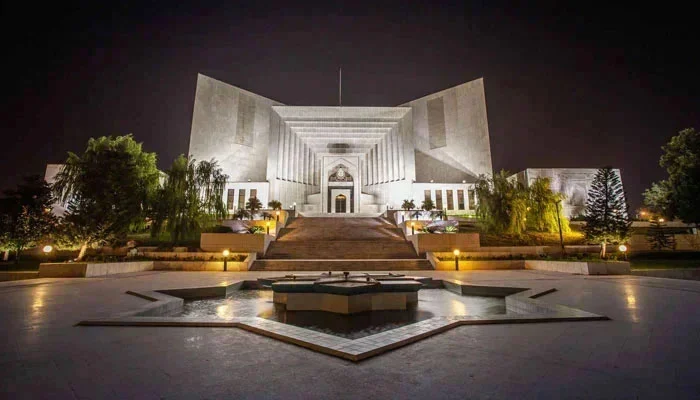ISLAMABAD: Election tribunals have become the focus of a significant ruling from the Supreme Court. On Monday, the Supreme Court accepted the Election Commission of Pakistan’s (ECP) plea against the Lahore High Court’s (LHC) verdict from June 12. The LHC had established election tribunals to handle petitions regarding national and provincial assembly constituencies from the February 8 general elections. The ECP challenged this ruling, asserting that it alone had the power to form these tribunals, a power the LHC could not exercise.
The Supreme Court, led by Chief Justice of Pakistan (CJP) Qazi Faez Isa, delivered a unanimous 5-0 decision, which had been reserved on September 24. The bench included Justices Amin-ud-Din Khan, Jamal Khan Mandokhel, Naeem Akhtar Afghan, and Aqeel Ahmed Abbasi. They declared the LHC’s ruling “null and void.” The apex court noted that the LHC’s single-member bench’s decision should not serve as a judicial precedent. This was because it failed to consider a crucial meeting between the LHC chief justice and the chief election commissioner.
The Supreme Court pointed out that if this meeting had been taken into account, the LHC would likely not have made its ruling. They emphasized the need for caution when it comes to decisions involving constitutional bodies. The court recognized that meaningful consultation occurred between the LHC chief justice and the ECP. As a result, the court ruled that the previous judgment was set aside, along with the notification issued on June 12.
CJP Isa highlighted an additional note in the unanimous decision, contributed by Justices Mandokhel and Abbasi.
The saga of the election tribunals began when the ECP requested a panel of judges from the LHC on February 14. The then LHC chief justice nominated two judges on February 20, followed by six more judges on April 14. The ECP notified two of these judges on April 26 but later added additional names for tribunals in Rawalpindi and Bahawalpur. However, the LHC chief justice denied this request and insisted that the electoral body notify the tribunals using the judges he had nominated.
On May 29, Justice Shahid Karim directed the ECP to appoint six more judges, as nominated by the LHC chief justice, for the election tribunals. He stated that if the ECP failed to comply, the notification would be considered issued. However, the ECP resisted the LHC’s demands. They argued that proceeding with the notification would imply that the judges were appointed solely by the LHC chief justice, violating Section 140(3) of the Elections Act.
The conflict escalated, leading to the formation of six additional election tribunals by Justice Malik Shahzad Ahmad. This was apart from the two already operational at the time, aimed at handling cases from the February 8 elections. The situation ultimately reached the Supreme Court, which suspended the LHC’s decision on July 4. This suspension included the ECP’s notification from April 26 regarding the formation of additional election tribunals.


